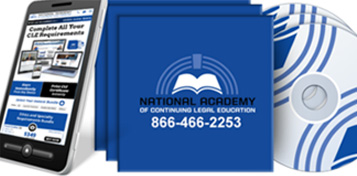About This Course
Hold onto your seats on this one. It will surprise many of you and cause you to question long-held beliefs that a contract is a contract and that any law attempting to negate an agreement that constitutes a meeting of the minds, has been entered into consciously, in good faith, by all parties, and for valid consideration, can possibly be constitutional. (Well I have news for you. It can and it is).
This CLE lecture is focused on what, even to entertainment industry professionals, might seem to be an obscure area of the law. Yet all general practice lawyers who deal in estate matters, together with trusts and estates specialists whose clients are authors of intellectual property or who are heirs, or likely heirs, of such authors need to be aware of the impact of termination rights which form an important part of the United States Copyright Act of 1976. Wealth management and business management professionals and accountants as well should understand the implications of the termination provisions.
If your clients are or were creators of intellectual property who sold their copyrights years, or even decades ago, yes, they can actually recapture them, at no cost, and keep them for decades to come. Two sections of the US Copyright Act of 1976 provide for the re-capture of certain copyrights previously sold, licensed, or otherwise assigned or transferred to a third party. It really is as simple as that.
This lecture will examine:
- If and which specific copyrights can be the subject of such actions;
- When, and under what circumstances, specific copyrights can be the subject of such actions;
- How such actions can be effectuated and the recaptures accomplished
- Who are the qualified parties who can achieve effective terminations;
- Who must, and who need not, or cannot, be among those attempting to re-capture copyrights;
- Rights that the terminating parties can acquire by taking such actions; and rights that they cannot acquire.
- How to value re-captured rights and
- Pitfalls arising out of the careless or ineffective exercise of such actions, including intervening actions of the author or the author’s heirs
This lecture will discuss all of the above issues in depth and the materials I am offering will further elucidate some of the more common concerns, and some of the more obscure issues as well, arising out of the Copyright Act provisions.






